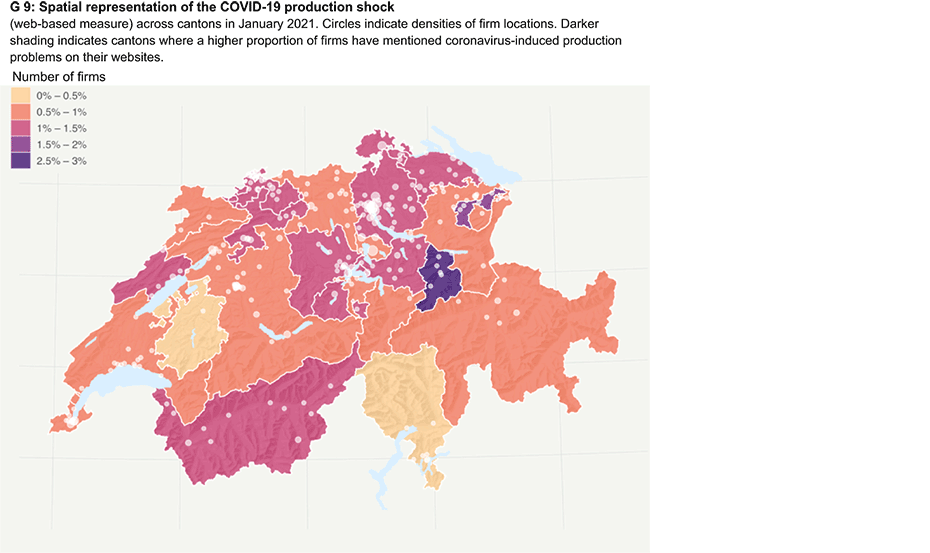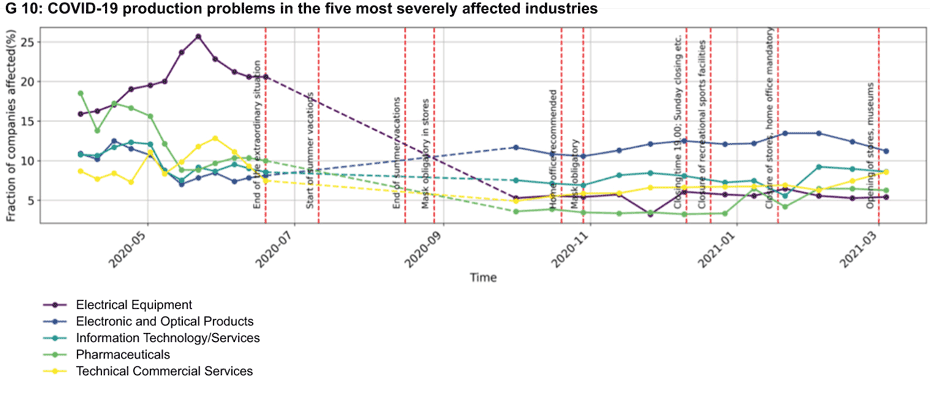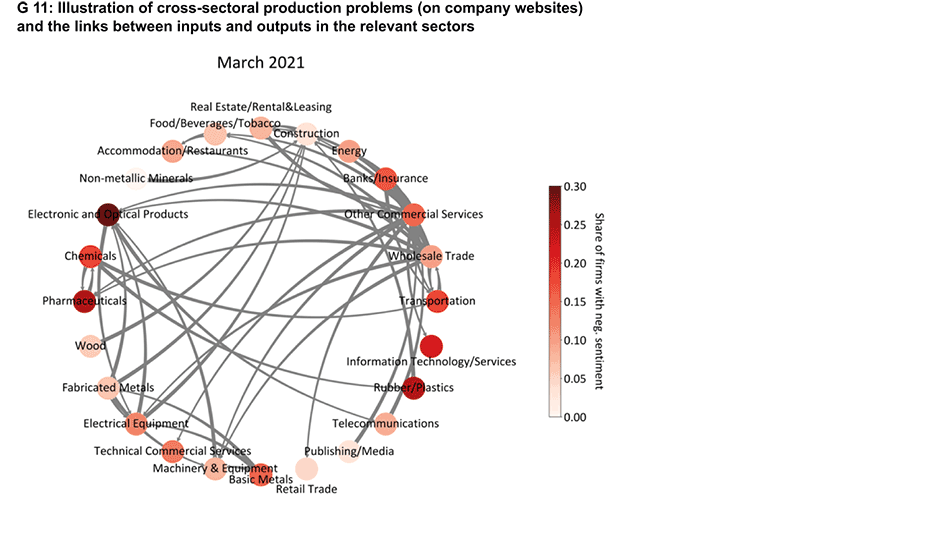Coronavirus crisis: which sectors have been most affected?
- Digitalisation
- Labour Market
- KOF Bulletin
KOF has used so-called web-scraping and text-mining methods to investigate the effects of the COVID-19 pandemic on Swiss companies. Among other things, this study comes to the conclusion that production problems occurred mainly at small and medium-sized firms during the first wave of coronavirus, while larger companies were more seriously affected during the second wave.

Switzerland’s State Secretariat for Economic Affairs (SECO) has commissioned KOF to analyse the coronavirus pandemic’s impact on Swiss companies. The analysis conducted by study authors Michael König, Parnian Shakar, Jakob Rauch and Martin Wörter is based on web-scraping and text-mining methods. Using this modern methodological approach, the authors have evaluated company websites by adopting an algorithm-based analysis procedure and have then supplemented and compared them with survey data from KOF and national statistics on aspects such as short-time working. G 9 shows a spatial representation of the affected regions whose firms have mentioned coronavirus-induced production problems on their websites

A key finding of the study entitled ‘How Were Companies Affected During the First and Second Waves of the Coronavirus Pandemic in Switzerland?’ is that production problems occurred mainly at small and medium-sized enterprises (almost 10 per cent of them) during the first wave of coronavirus, while larger companies were more seriously affected during the second wave. Moreover, according to website data and short-time working statistics, Ticino was the most severely affected region in Switzerland during the first wave, while regional differences were less pronounced during the second wave.
Furthermore, the study authors find that mentions of coronavirus-induced problems on company websites are positively correlated with short-time working and staff absences and are negatively correlated with infections (possibly owing to lagged effects), while the study finds no correlation between mentions of coronavirus-induced problems and bankruptcies.
Hospitality, air travel and leisure sectors are pandemic losers
At the sectoral level, data on short-time working show that directly impacted industries such as hospitality, air travel, and the arts, entertainment and recreation have been the most seriously affected by the crisis. The survey and website data complement this finding as they show that manufacturing industries that have limited working-from-home options and produce inputs for directly affected downstream industries are also facing production problems.
Companies with good digital infrastructure are more resilient
In analysing resilience and vulnerability to production, supply or purchasing problems resulting from the COVID-19 pandemic, the study authors conclude that firms that were severely affected by the first wave of the pandemic typically face strong price competition, are export-intensive and have difficulty delivering goods ordered online. In contrast, research-active companies, foreign-owned firms and businesses with good digital infrastructure are less seriously affected and have therefore shown greater resilience to the coronavirus-induced economic turmoil.

Grafic G 10 shows the changes over time in the five industries most seriously affected by COVID-19 production problems (on company websites), while Grafic G 11 shows these production problems across sectors and the links between inputs and outputs in industries for March 2021.

Text-mining method proves its worth but also has drawbacks
One important methodological conclusion from the study is that corporate websites can be used as a valuable source of information on economic performance and behaviour at the company level. However, there are some caveats with respect to the methods used. Larger companies tend to have bigger websites and update them more frequently. Larger firms therefore tend to be over-represented in web-scraping samples. In addition, the study authors note that companies in certain sectors – such as banking and finance or energy – are more likely to make negative statements about the COVID-19 pandemic on their websites for industry-specific reasons. This means that differences between sectors must be taken into account before any general conclusions can be drawn.
Information on the websites of approximately 50,000 companies in Switzerland has been analysed as part of this study. In order to identify the negative impact that the COVID-19 pandemic has had on these firms, the sections of text that mention coronavirus or synonyms of it have been examined using modern text-analysis methods. These reveal subjectivity in such texts, i.e. whether the term ‘coronavirus’ is mentioned in the context of production problems or delivery issues etc.
The full study (in English with German, French and Italian summaries) is available external page here.
Contacts
KOF FB Innovationsökonomik
Leonhardstrasse 21
8092
Zürich
Switzerland
KOF Konjunkturforschungsstelle
Leonhardstrasse 21
8092
Zürich
Switzerland